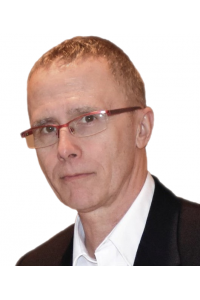Sometimes the truth is the hardest thing to reveal.
Travel writer Rob Hanson has been from the summit of Mount Everest to the markets of Mogadishu. He loves adventure, he loves his job, and he loves the freedom of being single. At least that’s what he tells himself.
Everything changes when an assignment takes him to a small, idyllic west-coast island where he falls in love with the local woodcarver. From the first moment he sets eyes on Mitch, he feels like he’s found his perfect match. But things are never that simple for Rob.
Before long he finds himself involved with devious deals, jealous ex-lovers, and secrets from the past that refuse to go away. Rob knows that the only way to get what he needs is to reveal the truth. But does he have the courage to do what must be done in time to save himself and the man he loves?
Reader advisory: This book contains references to past drug addiction, past non-consensual prostitution, alcoholism, animal death, and serious injury.
General Release Date: 19th April 2022
He closed the door behind him and leaned against it as if his weight would hold out the world. How many of them had there been? When was he going to learn to think before he acted? This time he could have died. His heart raced. Fucking idiot! Where the fuck had Yussuf gone?
Rob woke with a start. From the look on the face of the passenger in seat 2B, Rob must have gasped or yelled. He was breathing heavily. Rob pressed the call button for the flight attendant. There was time for one more gin and tonic before they landed.
Once in the airport, after passing through customs, he retrieved his luggage from the baggage carousel. One large green canvas duffle bag—which looked more like it had been dragged by the plane rather than stored in its cargo hold—was all he had, other than his beaten-up leather shoulder bag. He made it out to the cab stand and took the next available taxi.
“Queen’s Quay Terminal building, please,” he said to the driver, then closed his eyes. He didn’t want to appear to be rude by not talking. So Canadian, he thought. The oh-look-I’ve-fallen-asleep ruse usually fended off any attempt at mindless chatter from a driver. And he didn’t need to see the sights. The ride from Toronto’s Pearson International Airport to his home on the lake shore was nothing to see. It was all highway, industrial complexes, stubby office buildings and shopping malls. The trip showed Toronto as the ugly, unimaginative metropolis that it was, until they hit the expressway by the lake. Then it all changed—the lake, so big that it looked like a sea, the gaudy glamour of the Palais Royale dance hall, and the century-old buildings of the Canadian National Exhibition—they still made Rob smile. A quick left onto Queen’s Quay and he was almost home.
During the cab ride, he thought of his last night in Mogadishu. Of returning to his hotel room after dinner with his photographer. The Hotel Mustaqbal on the traffic-jammed Wadada Uganda was one of the better accommodations in this war-torn country. Clean rooms with a fair certainty of hot and cold running water. What else could he have asked for in Somalia?
When he’d entered the room, he had sensed, without even turning on the lights, that everything had been tossed. He’d frozen, not wanting to make a sound in case the intruders were still there. Whoever’d done this was probably looking for his computer, jewellery, identity papers—anything of value. The joke was on them. He’d learned years ago never to travel with electronics, other than his phone, and he kept that and his identification on him at all times. And he wrote everything in notebooks. He never had to worry about notebooks. No one wanted them, they didn’t break and they didn’t run out of power in a jungle. He’d once lost his pen in Tierra del Fuego but was still able to finish writing using a charred stick from the fire.
As he had surveyed the damage in his hotel room, he’d heard a noise. Out of the corner of his eye, he’d seen a figure make for the window. It was Abdi, his driver. Abdi had thrown himself out the window onto the fire escape. Rob had chased him. Why? He didn’t know.
They’d both hit the main street running. Rob had run right past a man leaning against a car talking to someone in front of the hotel. He’d kept going for another few hundred yards before realising it had been his guide, Yussuf. It was a few blocks later, on a small side street, that Abdi had yelled something in Somali to a few men. One had pulled out a gun and started firing at Rob. Rob had been pinned in a doorway, shards of concrete flying all around him, when he’d heard more shouting. More firing. Where the fuck was Yussuf? Then there was silence. Finally, a familiar head had poked around the corner.
“It’s safe now, boss. You come. Come!” Yussuf had waved him to follow. In his hand, he’d held an old CAR-15 automatic rifle. A body lay in the street. Rob hadn’t stopped to see who it was.
Life as an adventure travel writer was not what he thought it would be when he began this job. There was adventure, and there was this. One of these days, the adventure was going to win and all of the Yussufs in the world would not be able to save him.
* * * *
“Just by the water taxi stand, please.”
The driver pulled over to the curb. Rob paid the fare, wished him a good day, then toted his bag over to the pier.
The water taxi was a small open boat that ferried passengers from the mainland to one of the Toronto Islands. Formed from sediment washed from the Scarborough Bluffs to the east, the islands had once been a large sandbar which extended as an unbroken spit into the waters of Lake Ontario. Hurricanes in the mid-1800s had severed what were now the islands from the mainland. Over the years, houses, some no more than holiday shacks, had cropped up. Larger homes had followed. SeaBreeze, a modest three-bedroom, two-storey house with a roof deck, had been built in the late 1960s by Rob’s parents. They’d seen it as a needed quick-access get-away from their busy urban life. It was now the place Rob called home.
The sign for SeaBreeze, pegged to the front door, had been hand-carved by a local craftsman who’d missed the space after the Sea. Rob’s parents had found it charming and wouldn’t let him re-carve it. Here, Rob was at peace. It was just him, the trees and Lake Ontario. The sounds of waves on the shore and the cries of the birds were the only music he needed. They reminded him of his parents, and they were good memories.
He walked through the front door and everything was as he’d left it. All except for the dishes in the sink and the black bra on the floor under the baby grand piano. He was fine with that. At least, he would be fine with it as soon as he tidied everything up. And as soon as he’d settled in, he would call his cleaner to book an appointment.
As much as Rob thrived on chaos in the field, home had to be…organised. It was his problem, he realised that, but this was his home. Karen, who took care of the place when he was on assignment, was, to put it politely, a slob. “Look after your house? Of course I don’t mind. Why would I? You’ve seen where I live. Looking after a flophouse would be a step up in the world.” It was because of Karen that he’d bought the piano. He couldn’t play a note. It had to be tuned regularly because of the lakefront humidity, but that didn’t matter because Karen loved it, and she could play like Billy Joel.
Anyone seeing this house and hearing that the owner was a travel writer might think that writing was quite a profitable venture. SeaBreeze, with its luxurious finishes and lake view, could lead them to that conclusion, but they’d be wrong. Rob Hanson made little money. Some years not enough to cover expenses. This lifestyle was thanks to his parents—structural engineers who’d specialised in large-scale hydroelectric projects. They’d flown down to inspect one of their constructions on the Marañón River in Peru when their plane had gone down. That was twenty years ago.
Rob felt that he’d had a happy childhood. His parents had been his best friends. They’d treated him like an adult from an early age, openly discussing their lives, sharing their fascinations and friends with him. He had always felt safe, comfortable and loved.
He’d been raised by his parents in an old Victorian house on South Drive, in Toronto’s Rosedale neighbourhood, one of the city’s wealthiest communities. It was the home of the old-time gentry—of merchants, doctors and lawyers, of inheritors of money that no longer seemed to work for a living. The other two most affluent neighbourhoods, Forest Hill and the Bridle Path, were built for a different sort, each with its own…requirements. Rosedale, for instance, was the realm of the old white Anglo-Saxon Protestants. Rumour had it that even during the latter part of the last century, people couldn’t purchase there if they were Jewish. The wealthy and well-connected Jews and foreign émigrés established themselves in Forest Hill, an enclave of newer stately homes constructed a little further from the centre of their world—Toronto. The third neighbourhood, the Bridle Path, was for the gaudy nouveau riche—entertainers and entrepreneurial magnates—who desired large mansions and larger properties still within the confines of the metropolis.
Homes on South Drive, like their owners, were on the modest side of wealth. Rob’s parents had been accepted there despite their lack of historic connections, by virtue of being clever people. A neighbourhood like Rosedale liked clever people. It wore them like a Hermès scarf. Clever people made the other people feel chic and intelligent.
What Rob loved most about South Drive was its proximity to the Moore Park Ravine, a large expanse of wilderness in the city. He’d spent most of his free time there, exploring, making trails even deeper into his own private jungle. Here, his imagination had run wild. Here, he had learned the names of every tree, shrub, animal and fungus. Here, he had taught himself how to photograph everything from the largest tree to the smallest insect. But, more importantly, he’d learned to love, respect and understand nature.
Rob had been in his mid-twenties when he’d heard the news that his parents had gone missing. Their plane had gone down in the Peruvian jungle. When he’d received the news from an old family friend, a company lawyer, there’d been a bit of a disconnect. He’d heard the words, but his mind had only focused on Peru. That’s where Paddington Bear came from. Deepest, darkest Peru. I wonder if they’ll meet any bears? Why a twenty-five-year-old would have that thought had never occurred to him at the time.
He had been flown down to the area by his parents’ company during the search. Karen, whom he’d known since university days, had come along for support. Rob’s sister, Jessica, thought too young to be involved, had been left in the care of their aunt.
It had taken authorities three weeks to discover the tangled wreckage of his parents’ DHC-7. Rob had held Karen’s hand as they were flown to the crash site by helicopter. There’d been no sign of human remains left at the site. He and Karen hadn’t spoken. They’d clasped hands and focused on breathing. Neither had experienced death up until then.
As he’d stood in the jungle, surrounded by shards of debris, Rob had cried. He’d thought of never seeing his parents again, not knowing if they got out of the plane in time and were still out there…lost. Or had the animals… No, he wouldn’t let his mind wander there. But the more he had looked around, the more he’d felt, as inappropriate as it might have seemed, that in some strange way, his parents would have liked this as their final resting place. They’d both loved the wilderness. Rob had stayed on-site for the following week as the search continued, and the longer he stayed, the more peace he’d found. It was there that he had discovered what he wanted to do with his life—explore the wilderness.
When his parents’ estate had been settled, including the sale of their company, Rob Hanson discovered that he would never have to fear for his financial future. He’d become one of Toronto’s most eligible bachelors.

The Burnt marks Peter E. Fenton's fourth novel with Entwined Publishing. It is the third book in the Declan Hunt Mysteries series.
Peter's debut novel, The Woodcarver's Model,came out in April of 2022 and was a four time nominee in the Goodreads M/M Romance Readers' Choice Awards. The following year The Declan Hunt Mysteries series was launched with Mann Hunt which was released in the summer of 2023, followed by Hoodoo House in the summer of 2024. Both books were nominated for Goodreads M/M Romance Readers’ Choice Awards and both books have recently been released in Spanish.
Peter is also a playwright who has penned the book for four musicals including: The Giant's Garden, Newfoundland Mary, Bemused, and The Detective Disappears, which have had professional productions across Canada and the U.S.A.
He spent many years working in palaeontology in remote locations including the Canadian Rockies, the Northwest Territories and Nunavut. Peter currently resides in Toronto, Canada with his partner of over twenty years. At heart, he is an incredible romantic.
Find out more about Peter at his website and blog and follow him on Instagram and Bluesky.
















